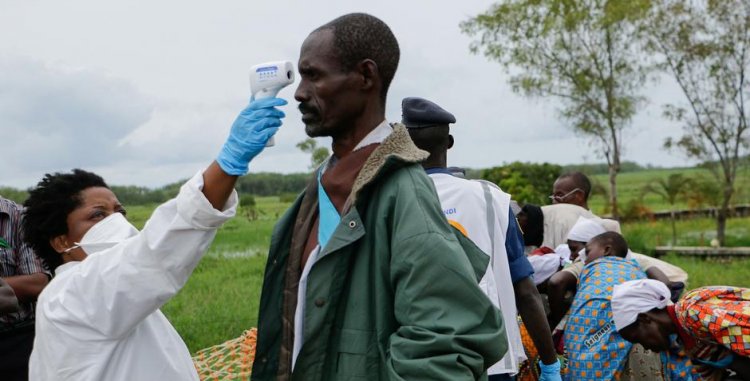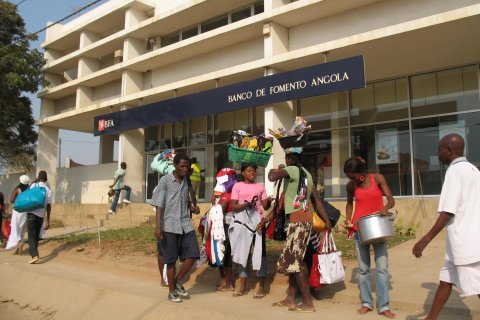According to an analysis by the Washington-based Africa Center for Strategic Studies, based on data from Johns Hopkins University, 28 of the 54 African countries have been reporting an increasing number of cases from week to week since October 1.
"This trend has resulted in an average of 22,000 new cases per day in December, eclipsing the peak of 18,000 recorded during the first wave of the pandemic in July," the Africa Center for Strategic Studies reports.
It notes, on the other hand, that "almost half (46 percent) of the total registered cases on the continent have been reported since October" and that 93 percent of those reported in the second wave are concentrated in 15 countries.
South Africa and Morocco, countries with the best testing capacities on the continent, continue to register the highest number of cases, however, countries such as Angola, Tunisia, Botswana, Uganda, Eritrea, and Burkina Faso had "sharp increases during the second wave", although the accumulation of reported cases remains relatively low.
Angola has 413 deaths and 17,864 cases, 71 percent of which were reported as of October 1, making it the fourth most positive African country, after Tunisia, Libya, Morocco, and South Africa.
"This means that the actual number of cases is probably much higher than what is being identified by current levels of testing," the center estimates, adding that only 10 countries concentrate more than 75 percent of the total number of tests conducted on the continent.
Countries with relatively older populations, higher international exposure, and stronger public health systems for testing have consistently reported more cases.
Mozambique, with 172 deaths and 19,667 cases, saw 53 percent of its total cases reported in the second wave, while in Cape Verde (113 deaths and 12,052 cases) 49 percent of cases were reported since October.
Equatorial Guinea (86 dead and 5286 cases), Guinea Bissau (45 dead and 2455 cases) and Sao Tome and Principe (17 dead and 1025 cases) have a second wave reporting rate of between 5 percent and 10 percent.
The analysis also addresses the new coronavirus mutations detected in South Africa and the United Kingdom in December, considering that in the African country, it is the new strain that is driving the second wave.
"Although the virulence of these new variants is still to be seen, it should be remembered that the second wave of the Spanish flu pandemic, a century ago, was more widespread and lethal in Africa than the first," he adds.
The Africa Center for Strategic Studies notes, on the other hand, a correlation between "low levels of government transparency or democracy" and "lower case numbers and tests," highlighting the example of Tanzania, which does not test or notify cases.
"This opacity makes it difficult to know the true extent of the second wave," the analysis notes, which also points to changes in patterns of exposure to the virus.
"Countries with large rural populations, such as those in the Sahel region, experienced some of the fastest growth rates during the second wave, suggesting that the virus is spreading beyond countries with significant international exposure," he says.
The center stresses that public health strategies in countries such as Senegal, Nigeria, Ghana, and South Africa "mitigated" the effects of the first wave, but the enormous resources needed to combat the pandemic "exacerbated fragility in many African countries.
"This fragility, combined with depleted public health systems, could make the second wave more threatening than the first," he said.
According to analysts, without a successful vaccination program conducted in parallel with the rest of the world, covid-19 could become an endemic disease in Africa, "creating the opportunity for even greater mutation and slowing efforts to eradicate the virus globally.
Africa has recorded a total of 69,863 deaths and 2,914,668 cases of covid-19 and 2,395,289 recovered patients since the beginning of the pandemic, according to data from the Centers for Disease Control and Prevention of the African Union (Africa CDC).
The covid-19 pandemic has caused at least 1,884,187 deaths resulting from more than 87.1 million cases of infection worldwide, according to a balance sheet made by the French agency AFP.







